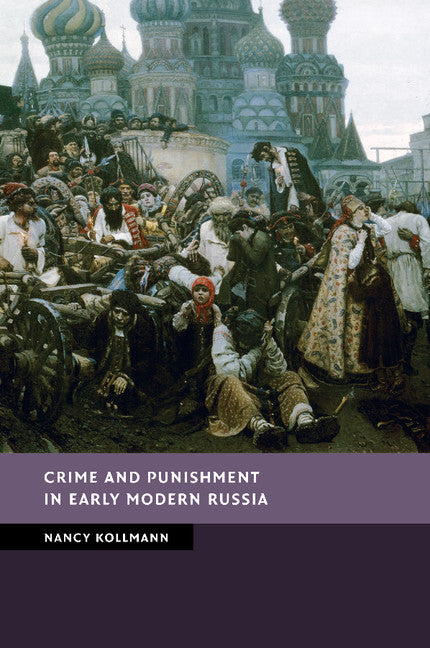Freshly Printed - allow 8 days lead
Couldn't load pickup availability
Crime and Punishment in Early Modern Russia
A magisterial account of criminal law in early modern Russia in a wider European and Eurasian context.
Nancy Kollmann (Author)
9781107699762, Cambridge University Press
Paperback / softback, published 5 March 2015
506 pages
23 x 15.3 x 2.5 cm, 0.75 kg
'I thoroughly recommend this exceptional piece of scholarship for those interested in the legal history of early modern Russia, as well as the complex socio-political dynamic at work in matters of crime and punishment. What is more, Kollman's analysis of criminal law in Russia provides a valuable addition to our wider understanding of European state-building.' Robert Collis, European History Quarterly
This is a magisterial account of the day-to-day practice of Russian criminal justice in the seventeenth and early eighteenth centuries. Nancy Kollmann contrasts Russian written law with its pragmatic application by local judges, arguing that this combination of formal law and legal institutions with informal, flexible practice contributed to the country's social and political stability. She also places Russian developments in the broader context of early modern European state-building strategies of governance and legal practice. She compares Russia's rituals of execution to the 'spectacles of suffering' of contemporary European capital punishment and uncovers the dramatic ways in which even the tsar himself, complying with Moscow's ideologies of legitimacy, bent to the moral economy of the crowd in moments of uprising. Throughout, the book assesses how criminal legal practice used violence strategically, administering horrific punishments in some cases and in others accommodating with local communities and popular concepts of justice.
Introduction
Part I. Judicial Culture: 1. Foundations of the criminal law
2. The problem of professionalism: judicial staff
3. Staff and society
4. Policing of officialdom
5. Procedure and evidence
6. Torture
7. Resolving a case
8. Petrine reforms and the criminal law
Part II. Punishment: 9. Corporal punishment to 1648
10. Corporal punishment, 1649–98
11. To the exile system
12. Peter I and punishment
13. Capital punishment: form and ritual
14. Punishing highest crime in the long sixteenth century
15. Factions, witchcraft and heresy
16. Riot and rebellion
17. Moral economies: spectacle and sacrifice
18. Peter the Great and spectacles of suffering
Conclusion: Russian legal culture
Appendix: punishment for felonies
Bibliography.
Subject Areas: Legal history [LAZ], Early modern history: c 1450/1500 to c 1700 [HBLH], European history [HBJD], History [HB]


